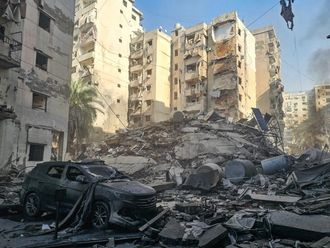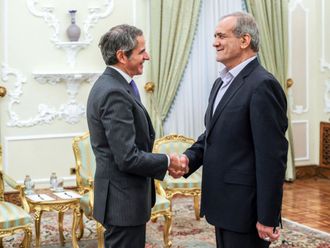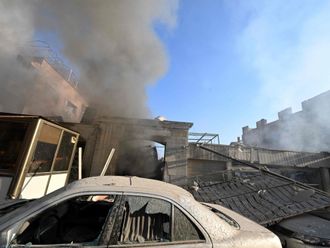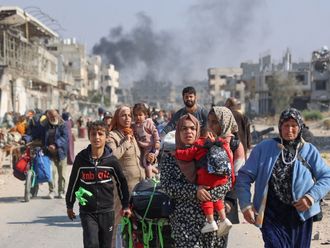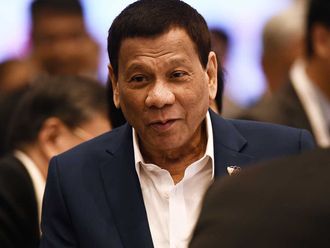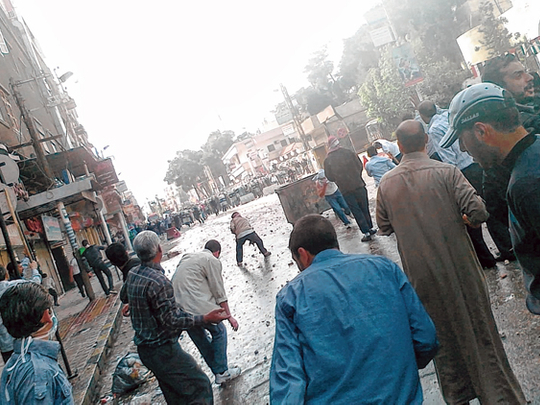
Amman: Syrian protests which broke out in the southern city of Daraa nearly three weeks ago have taken root in an urban centre near Damascus, where thousands gather every night to mourn demonstrators shot dead by security forces.
The Sunni suburb of Douma has emerged as a new focus of defiance against the 11-year rule of President Bashar Al Assad, shaken by the protests which spread across Syria after first erupting in Daraa.
In focus: Unrest in the Middle East
A key demand of protesters has been an end to a decades-old emergency law, which lawyers and activists say has been used by authorities to stifle opposition, justify arbitrary arrests and give free rein to secret police in the country of 20 million.
Witnesses say thousands of people have been gathering at night in front of the Big Mosque in Douma, a few km north of Damascus, to pay tribute to 10 protesters shot dead by security forces during a demonstration on Friday.
"Douma feels like a liberated city. But we have no illusions that this is temporary, and that the secret police have withdrawn to their headquarters only to absorb the rage in the streets," one of the residents said.
‘Not forgotten'
"The Friday massacre is not forgotten. People are afraid of a repeat this Friday," another resident said.
Outside Douma, on the streets leading to Damascus, the government has erected billboards carrying the slogan, "Besiege sectarian strife and isolate its symbols. The only road to reform is Bashar Al Assad".
Opposition and independent figures have signed a declaration to respect Syria's diversity, rejecting arguments by authorities that any challenge to Al Assad amounts to sowing sectarian strife.
Civic and religious leaders have descended on Douma to offer condolences. The area in front of the mosque has turned into a rallying ground for people calling for freedoms and unity.
"We call for freedom for every person. For every Sunni, Alawite, Esmailis and Christian, whether Arab or a member of the great Kurdish nation," Shaikh Mouaz Al Khatib, head of the independent Islamic Civilisation society, told a large crowd of mourners on Tuesday night.
"Freedom is a birthright. No one can grant it. Not the state, nor the ruler. The great people went out in the streets to take their rights without carrying a gun," he said.
"They called, and we call with them: peaceful, peaceful, peaceful," echoing the cry adopted by pro-democracy protesters during their successful popular revolution in Egypt.
Rebellious streak
Douma, a conservative suburb linking Damascus with the northern countryside, has a history of opposing autocratic rule.
Residents say they have formed popular committees to guide protests, echoing councils set up during Ottoman rule to oppose what was then viewed as an oppressive central government.
Douma farmers once depended on the Barada river, which fed Damascus but has dried up and is now a smelly stream. The suburb, however, is wealthier than other outlying areas of the capital and residents pride themselves on being highly educated.
They recall that on the eve of the French occupation of Syria in 1920, religious leaders met in Douma and issued a call for people to volunteer and fight the new colonialists. After the French decreed an unpopular constitution for Syria 12 years later, 1,500 people from Douma took to the streets as police fired bullets into the crowd.


